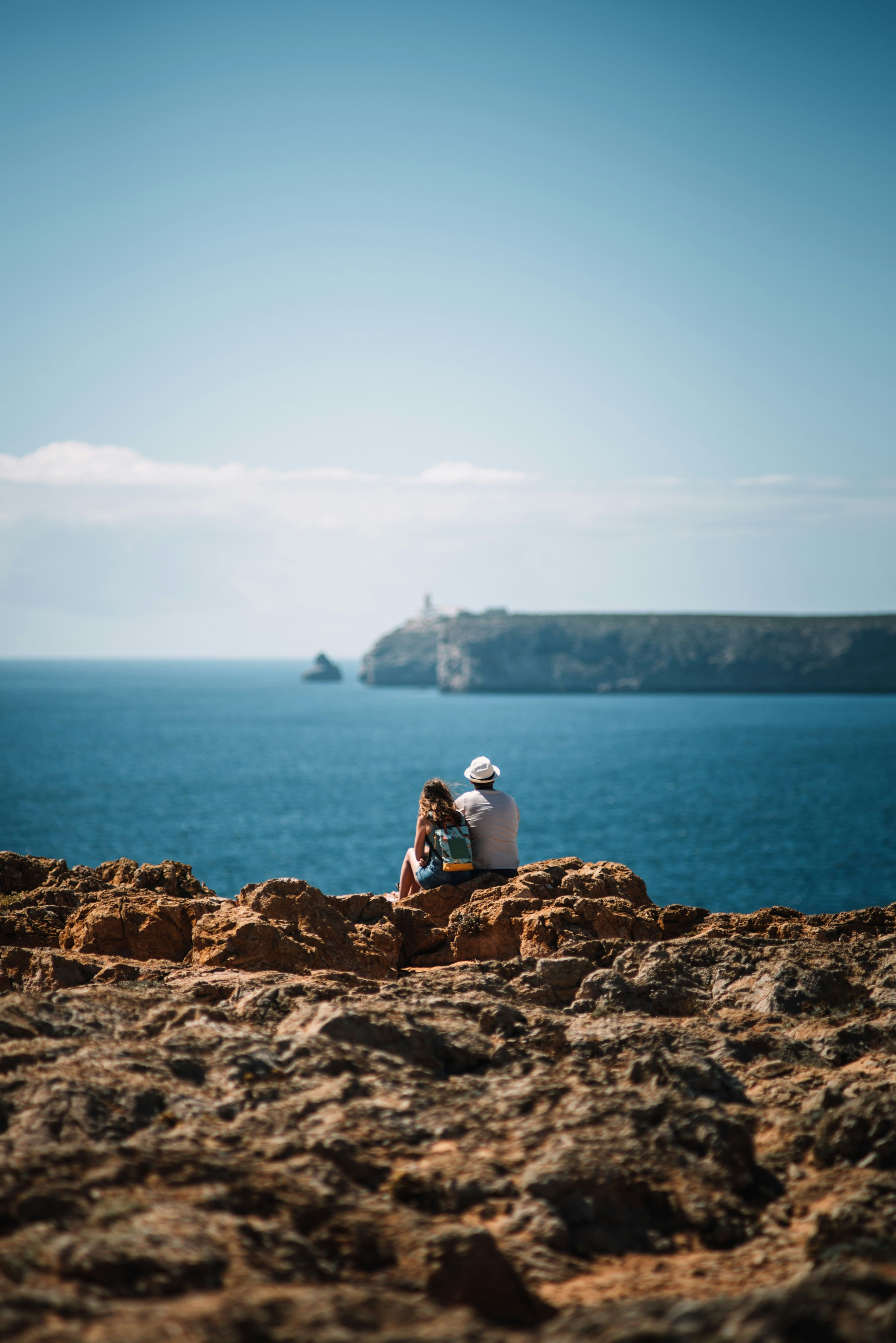
Budget Solo Travel Portugal Coastal Towns: Off-Peak Guide 2025
You're here at the perfect time," Maria tells me as we share a €5 plate of grilled sardines at her family's restaurant in Nazaré. It's April, and I'm the only tourist in sight. "In summer, this place would be so packed you'd wait an hour for a table, and the fish wouldn't even be as fresh." She's right - I've stumbled upon Portugal's coastal sweet spot.
The best time to visit Portugal's coastal towns isn't when the guidebooks tell you. Most travelers make the mistake of visiting in July and August, when temperatures soar and prices triple. But talk to any local, and they'll tell you their secret: come during the "shoulder seasons" - March to May or September to November - when the magic really happens. Your wallet will thank you (think €50 guest houses instead of €200 hotel rooms), but that's just the beginning.
When to Go: The Secret Seasons of Portugal's Coast
Spring vs. Autumn: Choosing Your Perfect Time
Spring (March-May) is when the coast comes alive. Imagine wandering through cobblestone streets as the scent of orange blossoms fills the air, or having entire stretches of beach to yourself - perfect for those moody Instagram shots. Yes, you might need a light jacket in the mornings, but by afternoon you're comfortable in a t-shirt. The sea is refreshing (read: brisk!), but the local cafes are cozy, and you can actually chat with fishermen about their morning catch instead of fighting through tour groups.
Autumn (September-November) is the coast's best-kept secret. The summer crowds have vanished, but the ocean is at its warmest - perfect for swimming. This is when the festivals happen, not the touristy ones, but the real deals: small towns celebrating their heritage with food, wine, and music. Picture yourself roasting chestnuts on a beach bonfire during São Martinho, or learning traditional salt harvesting techniques from families who've done it for generations.
What to Pack (Real Talk)
Forget the complicated weather charts. Here's what you actually need:
- Spring: Layer like a local. Mornings and evenings can be cool, but afternoons are t-shirt weather. Pack a light rain jacket - you might need it for an hour, then it's sunny again.
- Autumn: Think "endless summer lite" - warm days perfect for the beach, but bring a sweater for evening seafood feasts on the terrace.
Can't-Miss Local Festivals (The Ones Tourists Don't Know About)
Skip the crowded summer events and dive into the real culture:
- March's Seafood Festival in Nazaré isn't just about food - it's about getting adopted by local grandmothers who insist on teaching you their secret recipes. €1 oysters are just a bonus.
- In April, Óbidos transforms into a botanical wonderland during Festa das Flores. Imagine winding medieval streets draped in flowers, with local wine tastings in hidden courtyards.
- October brings the Salt Festival to Figueira da Foz, where you can wade through salt pans with harvesting families who've been doing this for generations.
- November's São Martinho might be my favorite - it's when coastal towns light up with bonfires on the beach. Locals bring new wine and chestnuts, and everyone's invited. This is the Portugal you came to find.

Where to Go: Portugal's Hidden Coastal Gems
Everyone goes to Porto and Lisbon," jokes Miguel, my surf instructor in Peniche, as he hands me a steaming cup of €0.65 coffee from his favorite local spot. "But the real Portugal? It's in towns like this, where a tourist can still accidentally become part of a fisherman's family dinner.
Let me tell you coastal towns where your euros stretch further and your travel stories get better:
1. Nazaré: More Than Just Monster Waves
Most people know Nazaré for its 100-foot waves, but visit in spring, and you'll discover a different town. Here, €30 gets you a room in a family-run guesthouse where the owner, likely named Maria, will mark up your map with spots only locals know. Follow the old ladies in their seven-layered skirts to Mercado Municipal - they know where the freshest fish is, and it's a third of restaurant prices.
Money-saving insider tip: Skip the overpriced funicular to the clifftop. The local bus costs €1.50, or follow the hidden stairway path behind the market for free (plus burning off those custard tarts).
2. Lagos: The Algarve Without the Price Tag
Lagos could have been just another tourist trap, but venture here off-season and it's a different world. Those famous golden cliffs? In April, you'll have them almost to yourself. The historic center transforms from a summer tourist maze into a living, breathing Portuguese town where €5 gets you a hearty fish soup at workers' cafes like Casinha do Petisco.
Local secret: Grab supplies from the morning market and catch the €2 local bus to Ponta da Piedade. Pack a picnic among the cliffs while watching fishing boats below - beats paying €50 for the same view from a tourist restaurant.
3. Peniche: Where Surfers Meet Fishermen
Peniche is where budget travelers strike gold. While surf schools charge €60/day in summer, off-season prices drop to €30, including gear. But the real magic happens at the port at 5 PM, when fishing boats return. Make friends with local fishermen (a few words of Portuguese go a long way), and you might find yourself invited to help grill the day's catch on makeshift BBQs.
Smart move: Stay in one of the family-run surf hostels (€15-20/night). Even if you don't surf, they know all the budget-friendly spots and often organize family dinners where everyone chips in €5.
4. Tavira: The Algarve Time Forgot
While tourists crowd Albufeira, Tavira keeps it real. This is where Portuguese families vacation, meaning local prices stay local. The morning market is a masterclass in budget travel - €2 gets you enough fresh fruit for days, and the ladies at the bread stalls often throw in extra pastries "for luck."
Money-saving hack: The boat to Ilha de Tavira beach costs €2 return, but walk 15 minutes east to the local fisherman's pier, and they'll row you across for a euro.
5. Ericeira: Surf Town with Soul
World-class surf spots meet traditional Portuguese life in Ericeira. Breakfast at local spots costs €3 (coffee, bread, eggs), compared to €12 in tourist cafes. The real appeal? Free coastal hiking trails connect all the beaches - no need for expensive tours.
Budget gem: Follow local surfers to Matinha Food Market around 3 PM. They markdown fresh-made sandwiches to €2, perfect for beach picnics.

Beyond the Brochure: Local Secrets for Saving Euros
I nearly spent €35 on a tourist shuttle from Nazaré to Peniche until Sofia, my guesthouse owner, stopped me. "That's crazy!" she exclaimed. "The local bus is €4.50, and you'll meet actual Portuguese people." She was right - that bus ride turned into an impromptu Portuguese lesson with an elderly gentleman who insisted on sharing his homemade bread.
Getting Around Like a Local (Without Breaking the Bank)
Forget expensive tours and tourist shuttles. The Portuguese coast has a secret network of budget transport that actually works. The Rede Expressos buses connect all major coastal towns for a fraction of tourist shuttle prices (Nazaré to Peniche: €4.50 vs €35). Better yet, schedule your trips around CP train "promo" tickets - book a week ahead and Lagos to Faro drops from €12 to €3.
Pro tip: Download the CP app and set alerts for "promo" tickets. They release them every Tuesday at midnight, and you can snag cross-country rides for the price of lunch.
Sleep Smart, Live Well
Those €200/night ocean-view hotels? They're usually empty in shoulder season, which is when booking.com gets interesting. But here's the real secret: Facebook Marketplace. Portuguese families list their spare rooms and holiday apartments here first, often 40% cheaper than Airbnb. In Ericeira, I found a fisherman's cottage for €35/night that would've been €90 on traditional platforms.
The hostel scene has evolved too. Forget crowded dorms - most coastal hostels now offer "micro-rooms" for €25-30. You get privacy plus insider access to community dinners and local guides.
Eating Well on a Shoestring
The "tourist menu" is never your friend. Instead:
- Track down the "tasca" restaurants - no English menus, but "prato do dia" (dish of the day) rarely tops €7, including wine.
- Hit local markets an hour before closing - vendors practically give away fresh fish and produce
- Join the "pastelaria" culture - Portuguese cafes serve substantial breakfast for €3-4
- Find your local "Mercado Municipal" - most have food courts upstairs where locals actually eat
My best food find? The "workers' lunch" phenomenon. Every Portuguese town has restaurants serving "almoço do trabalhador" - worker's lunch. Around €8-10 gets you soup, main course, dessert, coffee, and wine. Look for places packed at 12:30 with local workers.
Free (or Almost Free) Cultural Gold
Skip the paid tours and tourist traps:
- Join "Caminhadas" (local walking groups) on Facebook - Portuguese retirees organize free coastal hikes.
- Download the "Coastal Heritage" app - free self-guided walking tours of fishing villages.
- Visit churches during service times - you'll see traditional ceremonies and architecture for free
- Time your visit with saints' days - towns explode with free festivals, food, and music
The real secret? Make friends with older Portuguese people. They're walking encyclopedias of free entertainment - from hidden beaches to community events. That elderly gentleman on my bus? He invited me to his town's traditional fishing net mending demonstration. Cost: zero. Value: priceless.

Street Smarts: The Real Deal on Coastal Life
"Just promise me you won't use that ATM," Ana, my host in Lagos, grabs my arm as I reach for the Euronet machine. "Those tourist traps will eat your money. Come, I'll show you where we locals get our cash."
Banking Without the Tourist Tax
The Portuguese coast has a sneaky network of tourist-targeted ATMs that charge up to €7 per withdrawal. Here's what locals know:
- Look for Multibanco (MB) machines, usually blue and white - they charge minimal fees.
- Avoid anything labeled Euronet or "International ATM" like they're selling overpriced sardines.
- Many smaller towns only have one or two ATMs - get cash in larger towns where you have options.
- Most local businesses still prefer cash, especially for amounts under €20
Inside tip: If a restaurant asks "Do you want to pay in your home currency?" always choose euros. That friendly-sounding option hides a nasty exchange rate.
Staying Connected (Without Getting Ripped Off)
Forget paying for tourist SIM cards or relying on spotty cafe WiFi. Instead:
- Buy a local MEO or Vodafone SIM from any supermarket (€10-15 for 30GB)
- Municipal libraries offer free, fast WiFi and air conditioning - perfect for backup internet and travel planning
- Many town squares have free municipal WiFi - look for "CM_[Town Name]" networks
- Local cafes won't mind you using their WiFi if you're buying their €0.65 coffee
Pro tip: Download Maps.me and the area maps while you have good internet. The offline navigation works better than Google Maps for coastal walking trails.
Safety: The Stuff Locals Want You to Know
Portugal's coastal towns are generally very safe, but there's always smart and smarter:
- The biggest danger? Sunburn. The Atlantic sun is sneaky strong, even in spring
- Those dramatic coastal cliffs? Gorgeous but unstable. Stick to marked viewpoints
- Late-night solo walks are generally safe, but stick to well-lit streets
- Keep an eye on your stuff at the beach - not because of theft, but because sudden wind gusts are notorious for claiming towels and books
- Local wisdom: If you're swimming, check with the surf schools about conditions. They know better than any app or forecast.
The Off-Peak Advantage (Beyond Just Saving Money)
Here's why locals love the shoulder seasons:
- Restaurants have time to chat - you'll learn about secret menu items and family recipes
- Locals are more likely to strike up conversations when they're not overwhelmed with tourists.
- You can actually photograph those famous coastal views without twenty selfie sticks in the frame
- Better service everywhere - from unhurried shopkeepers to tour guides who can go off-script
The ultimate local secret? Portuguese coastal towns transform during off-peak seasons. That slightly grumpy waiter in August becomes your local guide in April. The closed-off fishing community opens up. You're not just seeing Portugal's coast - you're living it.
Final insider tip:
Learn these phrases:
"Bom dia" (Good morning)
"Obrigado/a" (Thank you)
"Que lindo!" (How beautiful!)
Use them sincerely, and watch doors open that no guidebook mentions.
This isn't just budget travel - it's travel that matters. You'll save money, sure. But more importantly, you'll experience the Portuguese coast that tourists dream about but rarely find.
Portugal's coastal towns don't need peak season to shine. In fact, they sparkle brightest when the crowds thin and prices drop. With some local wisdom and good timing, you'll find the authentic experiences - and better deals - that make travel truly memorable. Pack light, bring an open mind, and let the real Portugal surprise you.